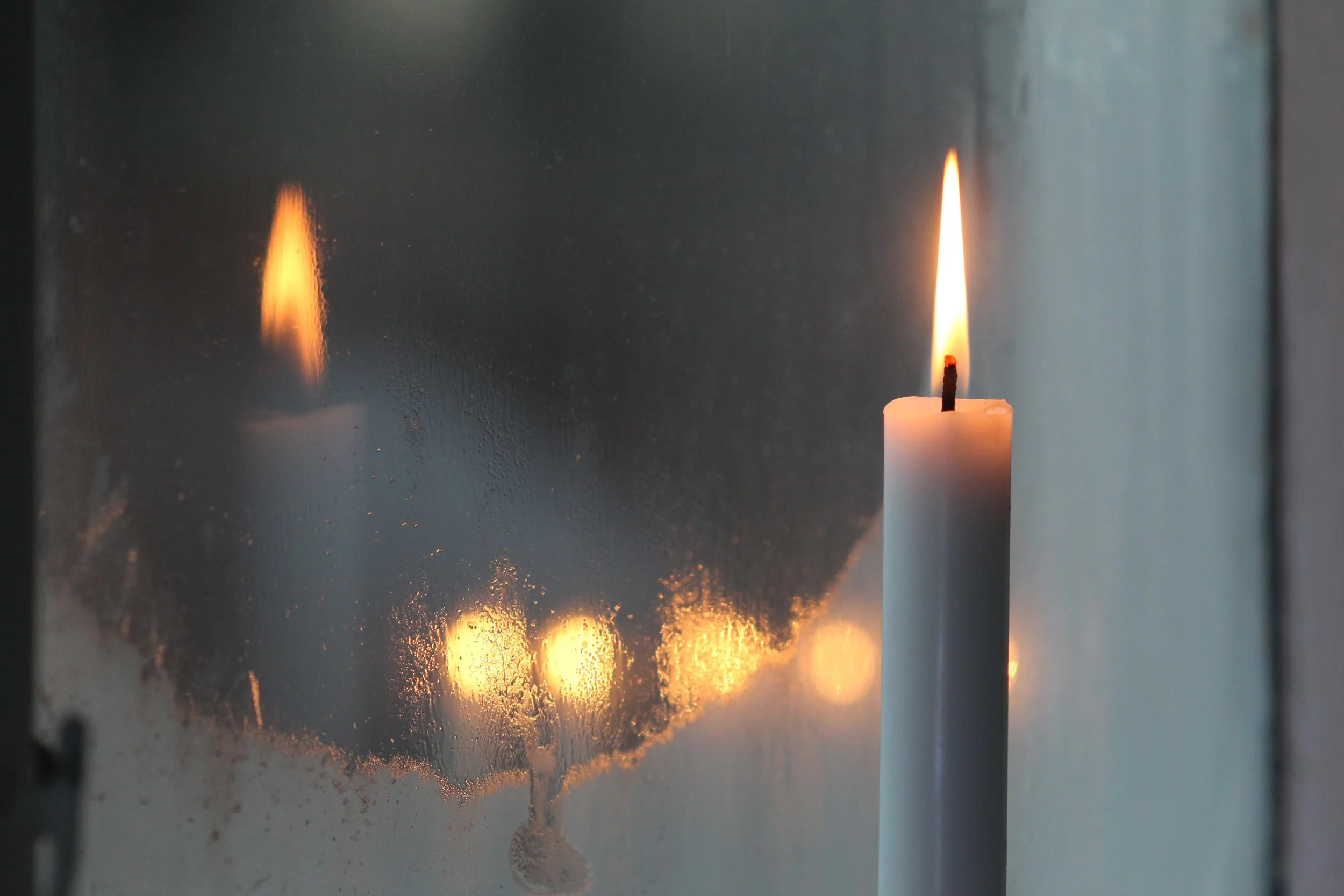Advent in the Midst of Suffering, Part II
By Katie Nguyen Palomares & Gracie Hulse
This year has had its fair share of suffering, especially as we live in a time where we’re intimately connected to the news of the world, often minute-by-minute. Witnessing global pain and trauma on a daily basis can often feel overwhelming and hopeless, as we simply watch horrors play out that we can’t do much about. Adding this to our own personal struggles, in family, work, friendships, health and more, and any chance of light or hope is snuffed out as we bounce from one difficulty to the next.
At Advent, we ask, where is the light? What can the birth of a baby really do in this incredibly thick darkness? How do we hold on to the flickering light of Jesus’ birth without repeating rite sayings and spreading toxic positivity?
While we certainly don’t have any neat answers to the pain of this world, this Advent several of our Reclaim editors are sharing what Advent means to them in the middle of real life, how a baby in a manger can point to a bigger story of redemption and hope.
Hope is a funny thing. Growing up amidst divorce, betrayal, and broken trust in my family, I used to view hope outright as something dangerous. The pain of hope deferred was worlds worse to me than the dull ache of hope left untouched. As I’ve grown older, I’ve learned that hope is precious not necessarily because it’s safe, but because of the message it brings amidst darkness.
Celebrating advent doesn’t mean we skip over pain, loss, or suffering that’s happening in our personal lives or in the world at large. It doesn’t mean we gloss over the pain our brothers and sisters overseas or immediately around us are experiencing. When the Lord of Lords, King of Kings, Wonderful Counselor, Prince of Peace came to embody hope, restoration, and truly Emmanuel, he didn’t skip ahead to the triumphant entry on a white horse to redeem all of creation.
First, he spent nine months in darkness. In the womb of a teenage girl who had full trust in who her God was and is. Waiting. Growing. Groaning. Our God entered his own creation through trauma and pain via a birth canal. He grew up. He spent time increasing in “wisdom and stature, and in favor with God and with people” (Luke 2:52, CSB) well before he died on a cross, declared the work finished, and rose again triumphant over death on the third day.
Celebrating advent is a declaration to the world that we are a people of hope and of light. Not because we don’t see or interact with the darkness, but because “[t]hat light” of hope, of a God embodied, “shines in the darkness” and is not overcome by it (John 1:5, CSB). This year, I will hope in the face of suffering and tragedy. Not because it’s easy, and not as a trite answer to make the darkness of suffering go away. But as a declaration that my Savior’s life from womb to tomb and beyond truly did conquer darkness.
~ Katie Nguyen Palomares, Reclaim Editorial & Podcast
My dad passed away this year. While it’s expected in life to experience death, it’s another extension of heartbreak to witness the prolonged pain and misery of a loved one before death. Peace seems impossible when there is suffering. Rarely do we ever find out the “why” for our suffering, or the suffering of others. Fear is a very human response to hardship. Our fears can manifest in a variety of ways such as an increased propensity for self-reliance and control. As Tim Keller puts it, “the only way to be happy is if we are wholly in charge of our lives.” This idea is absolutely misguided. So how do we manage our fears and find peace? In Keller’s book Hidden Christmas, he advises that “we should remind ourselves what ‘peace’ usually means in the Bible…the Bible says the most fundamental and important peace is peace with God.”
Hebrews 2:17–18 gives us the reassurance that through incarnation Jesus “himself has gone through suffering and testing, [so] he is able to help us when we are being tested.” While in the garden, in great anguish Jesus prayed for God to take away his suffering. Yet immediately following that prayer Jesus said, “Nevertheless, not my will, but yours, be done” (Luke 22:42, NKJV). Peace with God happens when we wholly trust in God—his character and his faithfulness. My peace comes from the promise of eternity with God in heaven and believing that my dad is rejoicing with God right now. My peace is Jesus’ familiarity with the same afflictions as I have from life's sorrows. My peace is that God offers all of us a reminder every year to reflect on his extraordinary love incarnate.
Keller says it well: “If you take time to comprehend (behold) what is in the Gospel message, it will remove the fear that has dominated and darkened your life. To the degree you truly behold—gaze at, grasp, relish, internalize, rejoice in—the Gospel, to that degree the fears of your life will be undermined.” Or in other words, we will find peace.
~ Gracie Hulse, Reclaim Editorial Content Coordinator
Image source: Anne Nygård
Katie is a Mixed Vietnamese/White pastor, writer, and speaker in Austin. She works with Kingdom Capital Network as the Program Manager serving and empowering small business owners to make a kingdom impact in their communities and with AACC as the Marketing/Comms Coordinator and part of the Editorial team. She earned her M.A. in Christian Leadership from DTS and B.A. in English with teacher certification from Texas State. She also consumes books like they’re chips, can often be found bouldering on indoor rocks with her husband, or enjoying a good cup of coffee and conversation!
Gracie is a content coordinator at the Asian American Christian Collaborative and also volunteers with a Seattle nonprofit. Her background is in digital media, sustainability, and advocacy. She’s lived in seven different cities in the last 13 years. Currently she’s in San Antonio with her husband and kids. In her free time she enjoys exploring the outdoors, trying new restaurants, listening to podcasts, and spending quality time with her friends and family.
Help us continue the work of empowering voices. Give today.



